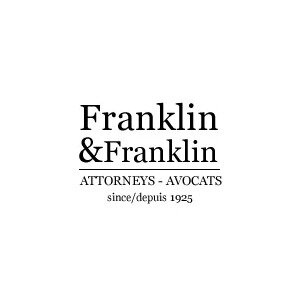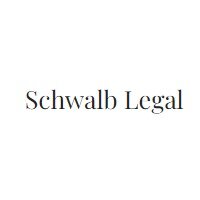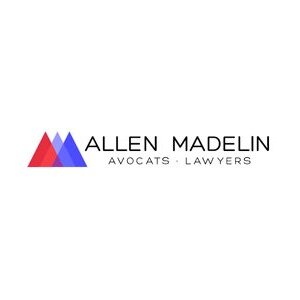Best Real Estate Due Diligence Lawyers in Montreal
Share your needs with us, get contacted by law firms.
Free. Takes 2 min.
Free Guide to Hiring a Real Estate Lawyer
List of the best lawyers in Montreal, Canada
About Real Estate Due Diligence Law in Montreal, Canada
Real estate due diligence in Montreal, Canada, involves a comprehensive evaluation and verification process to help buyers, investors, and stakeholders minimize risks associated with real estate transactions. This process can encompass a variety of tasks, such as reviewing legal documents, analyzing property conditions, and assessing any encumbrances associated with the property. The objective is to ensure that the buyer is fully informed about the property's legal, financial, and physical status before completing a purchase. This due diligence is crucial for preventing unforeseen complications, financial liabilities, or legal disputes.
Why You May Need a Lawyer
Several common situations might necessitate legal assistance during real estate due diligence:
- Complex Transactions: When dealing with commercial properties, mixed-use developments, or larger residential complexes.
- Legal Compliance: To ensure compliance with local zoning laws, building codes, and other regulations.
- Title Searches: To verify the property’s legal ownership and identify any liens or encumbrances.
- Contract Negotiations: To review and negotiate terms of the purchase agreement or lease contracts to protect your interests.
- Environmental Concerns: If there are potential environmental liabilities associated with the property.
- Dispute Resolution: For guidance in resolving disputes or legal issues that may arise during the transaction.
Local Laws Overview
Montreal, like other municipalities in Quebec, observes provincial regulations along with local ordinances relevant to real estate due diligence. Key aspects include:
- Notarial System: Quebec uses the unique notarial system for real estate transactions, where notaries play a crucial role in drafting, verifying, and executing deeds.
- Language Laws: Legal documents including purchase agreements may need to adhere to the Quebec Language Charter, requiring them to be available in French.
- Zoning and Land Use: Montreal's zoning laws govern the types of structures and businesses that can exist in specific zones, influencing property value and utility.
- Co-ownership Regulations: Condominiums have unique laws governing the rights and responsibilities of condominium owners and the management of common areas.
Frequently Asked Questions
What is involved in real estate due diligence?
Real estate due diligence involves verifying the legal, financial, and physical aspects of a property, including title search, inspecting physical conditions, reviewing legal and structural documents, and ensuring compliance with local laws.
Do I need a lawyer to review a real estate contract in Montreal?
While it's not legally required, having a lawyer review the contract can help protect your interests by ensuring the terms comply with Quebec law and suit your needs.
How does the notarial system work in Quebec real estate transactions?
In Quebec, notaries are involved in drafting and executing the notarial deed of sale, providing a measure of legal oversight and simplifying registrations in the land registry.
What are zoning regulations, and why are they important?
Zoning regulations determine the permissible uses of land and development standards in Montreal, influencing property values, legality of developments, and potential future uses.
Can language laws affect my real estate transaction?
Quebec's language laws often require that legal documents, including real estate contracts, are available in French, which can affect transaction procedures.
What is a title search, and why is it essential?
A title search is a review of public records to confirm a property's legal ownership and identify any liens, encumbrances, or defects that could affect ownership.
Are there specific environmental assessments required?
Depending on the property's history and local regulations, environmental site assessments may be required to uncover possible contamination or compliance issues.
How long does the due diligence process take?
The duration varies depending on property complexity, but typically ranges from a few weeks to a few months to complete all necessary investigations and legal verifications.
What should I do if I uncover an issue during due diligence?
If issues arise, consult your lawyer to determine how to address them, which might include renegotiation, requiring repairs, or withdrawing from the transaction.
Is it possible to waive certain due diligence steps?
While some steps can be waived, it is usually advisable to complete a full due diligence to ensure informed decision-making and avoid future liabilities.
Additional Resources
For more information and assistance, consider consulting the following resources:
- Ville de Montréal: Offers information on zoning and urban planning.
- Ordre des notaires du Québec: Provides guidance on the role of notaries in real estate transactions.
- Canadian Bar Association: Offers resources and a lawyer referral service.
- Real Estate Council of Quebec (OACIQ): Ensures professional conduct of real estate brokers and agents.
- Quebec Land Registry: Public records on property titles and liens.
Next Steps
If you believe you require legal assistance for real estate due diligence, start by consulting with a qualified real estate lawyer in Montreal. Prepare all relevant documents and information regarding the property you are interested in, and list any specific questions or concerns you may have. An initial consultation can provide a clearer understanding of the legal landscape and the specific steps you need to take to protect your investment.
Lawzana helps you find the best lawyers and law firms in Montreal through a curated and pre-screened list of qualified legal professionals. Our platform offers rankings and detailed profiles of attorneys and law firms, allowing you to compare based on practice areas, including Real Estate Due Diligence, experience, and client feedback.
Each profile includes a description of the firm's areas of practice, client reviews, team members and partners, year of establishment, spoken languages, office locations, contact information, social media presence, and any published articles or resources. Most firms on our platform speak English and are experienced in both local and international legal matters.
Get a quote from top-rated law firms in Montreal, Canada — quickly, securely, and without unnecessary hassle.
Disclaimer:
The information provided on this page is for general informational purposes only and does not constitute legal advice. While we strive to ensure the accuracy and relevance of the content, legal information may change over time, and interpretations of the law can vary. You should always consult with a qualified legal professional for advice specific to your situation.
We disclaim all liability for actions taken or not taken based on the content of this page. If you believe any information is incorrect or outdated, please contact us, and we will review and update it where appropriate.












